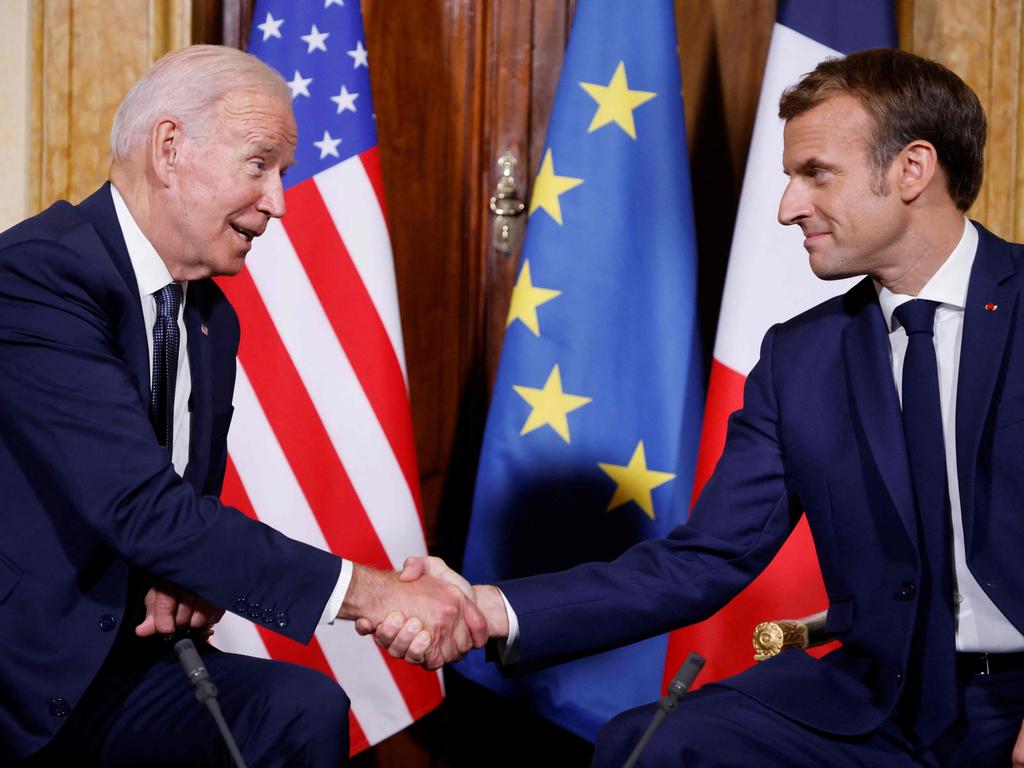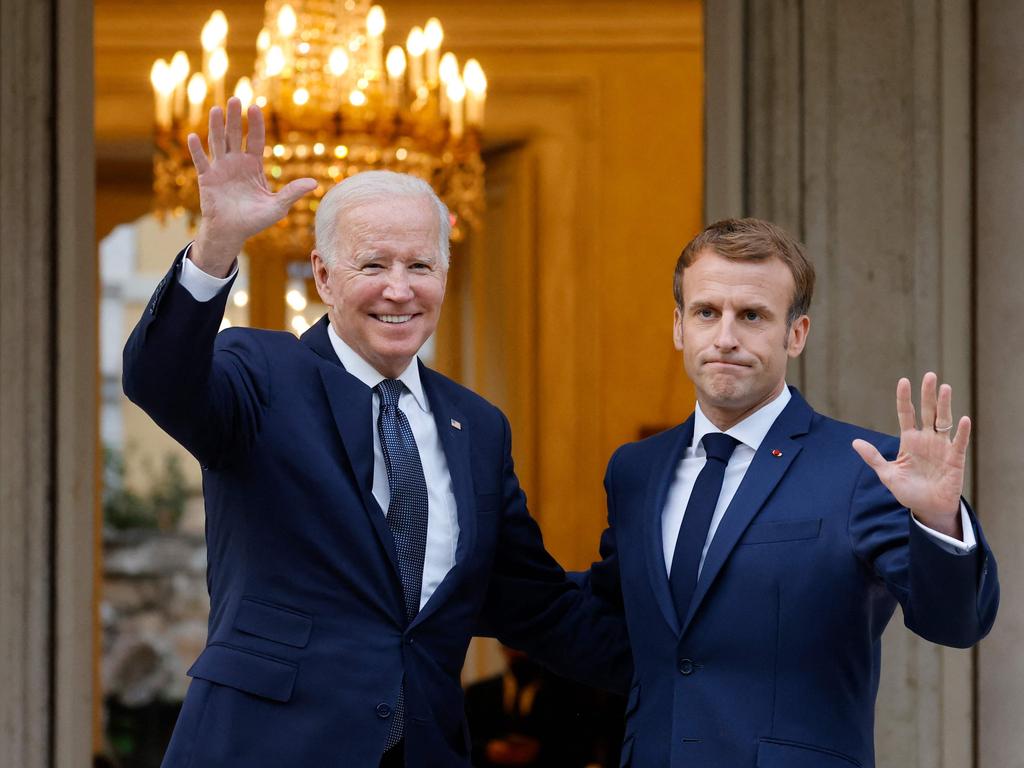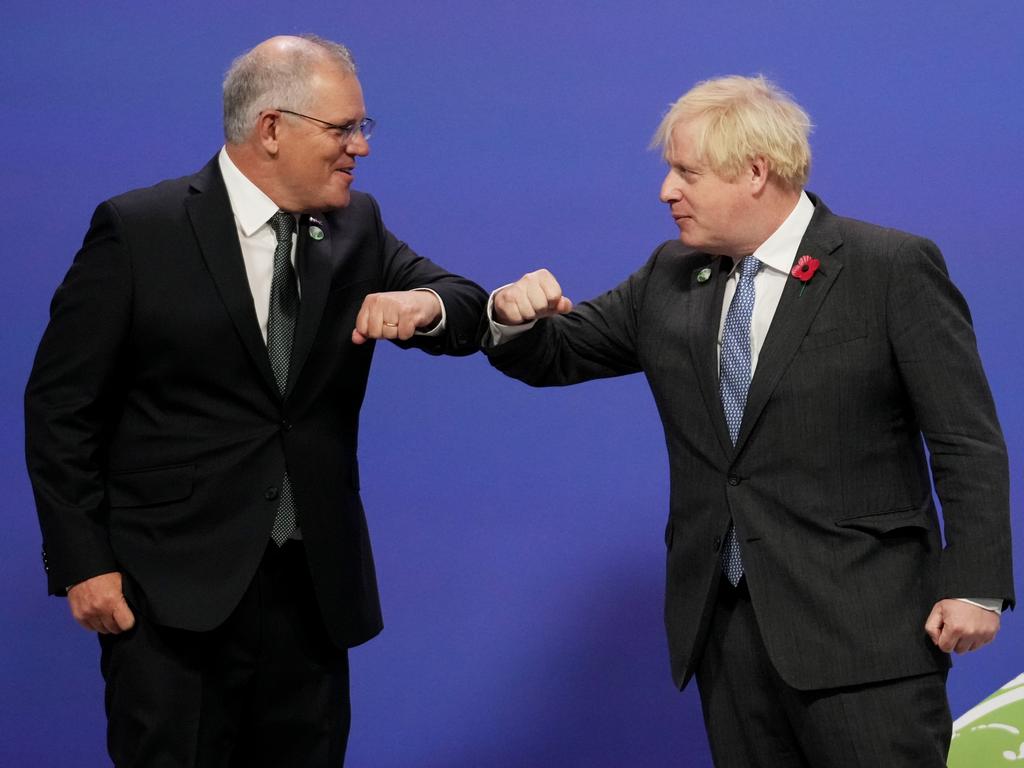Texts, lies and leading questions: a matter of context
For one democratic leader to brand another democratic leader by the abusive term liar is undiplomatic in anybody’s terms.

The word liar used to be applied to someone who said something false with deliberate intent to mislead. Consequently an incorrect statement is not, of itself, a lie. Nor is a statement that is wrong because of a false memory.
However, in recent years the usage of such words has undergone a change. These days, fascist is used by sections of the left to describe someone with whom they disagree. Fascism now is not so much a historical entity as a term of abuse. It’s much the same with liar. The word increasingly is used to diminish someone who has not volunteered information or who has been evasive or genuinely mistaken.
Increasingly, fascist and liar are words that are used as weapons – very often out of context. The current allegation against Scott Morrison is that he deliberately lied to French President Emmanuel Macron with respect to Australia’s intentions about the contract for the French Naval Group to provide 12 conventional submarines to the Royal Australian Navy.
The idea that the French President, when speaking in fluent English, deliberately called the Australian Prime Minister a liar is now almost an accepted fact. It is understandable why Morrison’s political opponents have made use of Macron’s comments at the G20 meeting in Rome to fang the Prime Minister. That’s politics.
However, journalists should be above political activism. The fact is that Macron was asked what lawyers would call a leading question, to which he replied. The exchange took place after the ABC’s Andrew Probyn, with SBS cameraman Pablo Vinales, managed to “doorstop” Macron moving between meetings inside the G20 headquarters.
Let’s go to the transcript when Nine Entertainment’s Bevan Shields got involved in the impromptu door stop: “Bevan Shields: Can you trust Scott Morrison again? Can you trust Scott Morrison again? Macron: We discussed, I do respect – Shields: Can you trust him though?
“Macron: I mean, we will see what he will deliver. I have a lot of respect for your country. I have a lot of respect and a lot of friendship for your people. I just say when you, when we have respect you have to be too, and you have to behave in line and consistently with this value. Shields: Do you think he lied to you? Macron: I don’t think, I know. Macron adviser: Thank you. Thank you. We have to leave.”
The footage of the exchange appears to show Shields nodding twice after Macron’s “I don’t think, I know” comment.
It is understandable why the French President was furious that Australia had decided not to proceed with the French submarine contract and decided instead to enter into discussions with Britain and the US governments with a view to obtaining nuclear-powered submarines under the new AUKUS security agreement.
Likewise, it is understandable why the Australian Prime Minister decided that the decision made during Malcolm Turnbull’s prime ministership, that Australia should purchase conventional submarines from the French, was not a good one.
That’s business, as the French surely know. Sure, Macron accused Morrison of not acting with respect to France. But the word lied was introduced by Shields – not by Macron.
This is what Finance Minister Simon Birmingham was alluding to when interviewed by ABC Radio National Breakfast presenter Sally Sara on November 5.
Birmingham responded to a question about the Morrison government’s behaviour with respect to the leaked document that suggested Macron was uncertain whether Australia would go ahead with the submarine deal before AUKUS was announced. Birmingham replied: “Well Sally, people could ask – whether it was wise for journalists … to pressure the President … in regards to the comments that he made.”
Sara did not like the reply, interjecting: “Hang on, that, that wasn’t pressure.” But it was. That’s what leading questions are all about.
After the interview, ABC TV Insiders presenter David Speers began his weekly spot on RN Breakfast. He supported Sara against Birmingham, claiming it was “pretty extraordinary … to suggest that journalists were pressuring the President of France to take a position on this”. No, it wasn’t. If Shields had not introduced the idea that Morrison had consciously lied to Macron, there is no evidence Macron would have proffered the term himself. In fact Macron did not even use the term lied. Which would not be surprising since neither the French President nor France’s ambassador to Australia has produced evidence of any such lie.
Last Sunday, Probyn appeared on Insiders. In his capacity as presenter, Speers declared that Birmingham’s comments of the previous Friday were “pretty offensive”. How about that? Now tough-minded journalists are taking offence on behalf of their work colleagues. Needless to say, Probyn agreed with Speers – declaring that Birmingham was talking “bloody nonsense”. That was not an argument, just abuse.
Writing in The Australian on Monday, Chris Mitchell commented that left-wing journalists regard it as “OK for Emmanuel Macron to call Scott Morrison a liar publicly, but it is a diplomatic outrage for the Australian leader to leak a text message that proves his French counterpart was the one bending the truth”.
An example of this occurred when Guardian Australia political reporter Amy Remeikis was interviewed by Fran Kelly on RN Breakfast on November 4. Remeikis, who is one of four journalists from the avowedly left-wing Guardian newspaper who has a gig on Insiders, sided with Macron against Morrison. No surprise there – that’s what left-wing journalists tend to do.
But Remeikis made an extraordinary claim that Kelly did not challenge. Remeikis declared “the first rule of diplomacy is never to make it personal and Scott Morrison has made it personal with the leaking of the text messages”.
False. Macron made it personal when he went along with Shields’s leading question that Morrison had lied to him. For one democratic leader to brand another democratic leader by the abusive term liar is undiplomatic in anybody’s terms.
Gerard Henderson is executive director of the Sydney Institute.







The term fascist used to have real meaning. It applied to Benito Mussolini’s dictatorship that prevailed in Italy from the March on Rome in October 1922 until the man who liked to be called Il Duce was overthrown in July 1943.